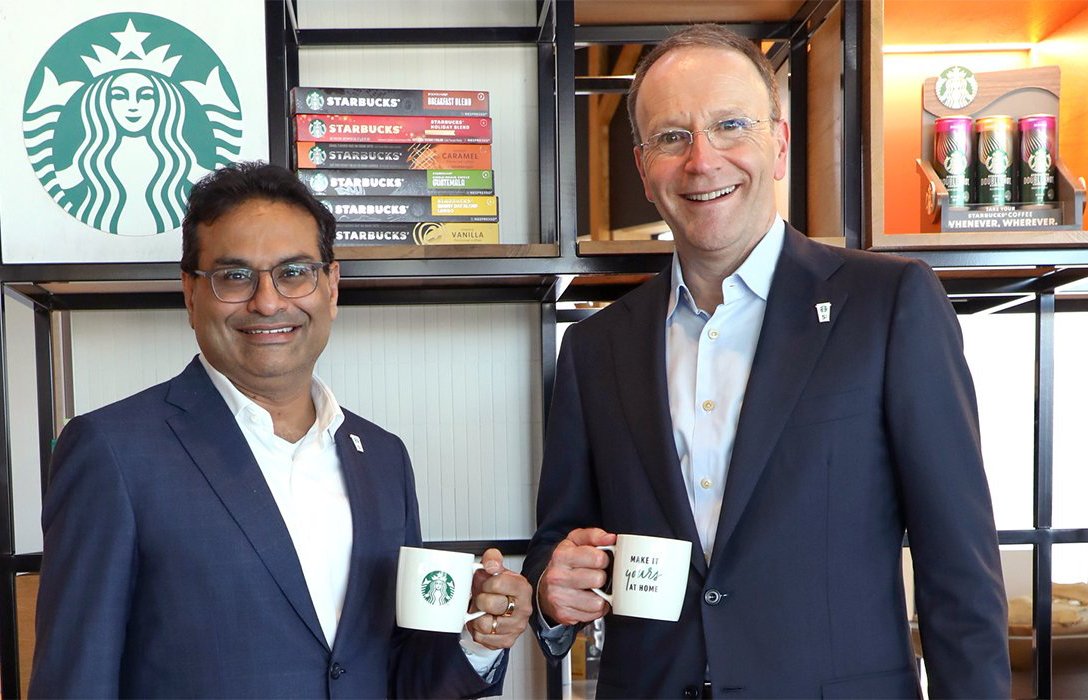The company’s respective CEOs, Laxman Narasimhan and Mark Schneider, met to celebrate five-years of the partnership and outlined further collaboration on cold and seasonal coffee products
-and-Nestle-CEO-Mark-Schneider-(right)-(2).jpg.aspx?lang=en-GB&width=700&height=450)
Starbucks CEO Laxman Narasimhan and Nestlé CEO Mark Schneider | Photo credit: Nestlé
Starbucks and Nestlé have hailed the success and future potential of the Global Coffee Alliance at a meeting to mark the partnership’s five-year anniversary.
Formed in 2018 in a deal worth $7.1bn, the agreement granted Swiss food and beverage giant Nestlé exclusive rights to market and distribute Starbucks-branded retail packaged coffee, pods and ready-to-drink (RTD) ranges across more than 80 markets outside of Starbucks’ retail stores.
Nestlé reported sales of Starbucks products grew 13% in 2022 to reach CHF 3.6bn ($3.9bn).
Nestlé CEO Mark Schneider and Starbucks CEO Laxman Narasimhan said the two companies will continue to grow the partnership’s reach in consumer-packaged goods and out-of-home channels globally, with cold and seasonal coffees highlighted as key growth segments.
“We are proud of the work we have achieved together. Nestlé and Starbucks are deeply committed to growing this business. The results show that,” Schneider said.
“We are confident that there remains enormous opportunity for the Starbucks brand in this segment and only expect this business to continue to grow and reach more consumers through the alliance,” Narasimhan added.
In July 2023, Nestlé reported high single-digit sales growth for its coffee segment in the first half of 2023, with Starbucks RTD products and Nescafé instant coffee highlighted as key performers in the category. The Swiss food and beverage giant’s total sales in the six months ended 30 June 2023 grew 1.6% to CHF 46.3bn ($54bn).
The following month, Starbucks posted ‘record’ third quarter results, with total sales, profits and outlet growth boosted by a strong performance in China. However, its Channel Development division, which encompasses sales of branded packaged coffee, tea and RTD beverages outside of company-operated and licensed stores, fell 6% to $449m.